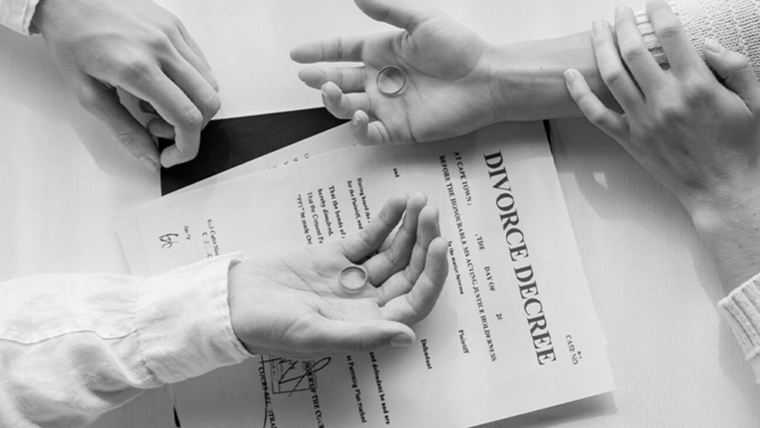Divorce is undoubtedly one of the most difficult experiences in a person’s life, but for children, the emotional toll can be even more profound. While parents are navigating the complex legal and financial aspects of a divorce, they must also be mindful of the emotional needs of their children, who may be struggling with feelings of confusion, sadness, and fear.
How parents handle the situation will have a lasting impact on how children cope with the changes that come with their parents’ separation. Understanding the emotional and psychological effects of divorce on children, as well as the steps parents can take to protect their well-being, is critical. Below, we explore the effects of divorce on children and provide strategies to help protect them during this challenging time.
The Emotional and Psychological Effects of Divorce on Children
Children’s reactions to divorce can vary greatly depending on their age, temperament, and the circumstances of the separation. However, it’s common for children to experience a range of emotions, including:
Confusion: Young children, in particular, may not fully understand the reasons behind the divorce, which can leave them feeling confused and uncertain about the future.
Sadness and Grief: Children may mourn the loss of the family dynamic they once knew, which can be especially painful if they feel the separation is their fault.
Anger: Divorce can lead to feelings of anger, whether directed at one or both parents, or sometimes even at themselves.
Fear: The uncertainty of what will happen next, such as changes in living arrangements or less time spent with one parent, can create anxiety for children.
Guilt: Many children feel responsible for their parents’ separation, even though it is not their fault. They may worry about upsetting one or both parents.
How Children of Different Ages Are Affected
The way children process and react to divorce will depend, in part, on their age and developmental stage. Understanding these differences can help parents better support their children through the transition.
Young children (under 5): Young children within this age group may have difficulty understanding the divorce. They may express their emotions through behavioural changes such as clinginess, regressions in potty training, or increased tantrums. They are often comforted by routine and the reassurance that both parents still love them, even if they no longer live together.
School-age children (6-12 years): Children in this age group tend to have a better understanding of the situation, but they still may struggle to process their emotions. They may act out or have trouble concentrating at school. It’s not uncommon for them to worry about what will happen to them, where they will live, and whether both parents will still be involved in their lives.
Teenagers (13-18 years): Teenagers are more likely to understand the complex emotions surrounding divorce, but they may express their feelings in ways that are harder to identify, such as withdrawing, acting out, or becoming overly independent. They may also experience feelings of anger, resentment, and a desire for loyalty to one parent over the other.
How to Protect Children’s Well-being During Divorce
While divorce is undoubtedly a difficult transition, there are proactive steps parents can take to minimise the negative impact on their children. Here are some practical tips for supporting your children through the divorce process:
- Maintain Open Communication
Encourage open, honest, and age-appropriate conversations with your children. Let them know that the divorce is not their fault and that they are loved by both parents. Be prepared for tough questions and try to answer them as honestly as possible without overwhelming them. Keep the lines of communication open and let your children know they can come to you with any questions or concerns.
- Keep Routines Consistent
Children find comfort in routine, and a divorce can feel like their world is being turned upside down. Try to keep daily routines as normal as possible, including school, extracurricular activities, and mealtimes. If living arrangements will change, provide clear explanations and reassure your children that their basic needs will still be met.
- Avoid Placing Blame
It’s crucial to avoid bad-mouthing your ex-partner in front of the children. Negative comments about the other parent can make children feel conflicted and forced to take sides, which only heightens their emotional distress. While you may be going through a difficult time with your spouse, focus on being civil and maintaining a healthy co-parenting relationship for the sake of your children.
- Encourage a Positive Relationship with Both Parents
As much as possible, encourage and support your children’s relationship with both parents. Children need to feel that they can continue to have a strong bond with both parents, even though they are no longer together. Allow your children to express their love for both parents without feeling guilty or like they’re betraying anyone.
- Provide Emotional Support and Stability
Divorce can create a lot of emotional turbulence for children. Ensure that your children feel emotionally supported, loved, and safe during this time. Offer comfort and reassurance when they express sadness, fear, or confusion. Encourage them to talk about their feelings, but respect their boundaries if they need space to process their emotions.
- Seek Professional Help if Needed
In some cases, children may need additional support to help them navigate the emotional impact of the divorce. Family therapists or child psychologists can provide a safe space for children to express their feelings and develop coping strategies. If your child is having difficulty adjusting, professional counselling can be a valuable resource.
Co-Parenting and Divorce: A Key Factor in Children’s Well-being
An effective co-parenting relationship is critical for the well-being of children after divorce. Co-parenting involves both parents working together, even if they are no longer married, to make decisions in the best interests of their children. This includes agreeing on child arrangements, school decisions, holiday schedules, and other important matters related to their upbringing.
Clear and consistent communication between parents, flexibility in arrangements, and mutual respect can make a significant difference in how children adjust to the new family dynamic. If co-parenting is difficult, mediation or legal advice can help ensure that both parents are on the same page and focused on the children’s best interests.
Divorce Doesn’t Have to Be Harmful to Children
While divorce is undeniably a challenging experience for children, with the right approach and support, they can thrive after the separation. Open communication, maintaining consistency, and ensuring that both parents remain active and loving parts of their lives are key steps in protecting your child’s well-being.
If you are facing a divorce and need advice on child arrangements or emotional support during this time, Notta Taj Law can help. Our experienced family law team can guide you through the legal aspects of Private Children matters and ensure that your children’s needs are prioritised throughout the process. Reach out to us for expert advice and support during this challenging time.



